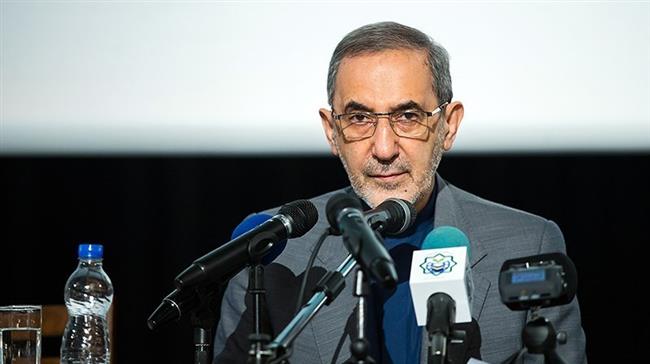Iran seeks no permission to strengthen missile capabilities: Velayati


A senior Iranian official has reiterated the Islamic Republic’s “legitimate” right to use missiles for its defense, saying the country does not need permission from any state to bolster its missile program.
“The Islamic Republic of Iran will not seek anybody’s permission to develop its missile capabilities and will use missiles in any way and quantity it deems necessary, and this is a legitimate right of Iran,” Ali Akbar Velayati, a senior adviser to Leader of the Islamic Revolution Ayatollah Seyyed Ali Khamenei on international affairs, told reporters in Tehran on Saturday on the sidelines of a meeting with foreign guests attending the 40th anniversary of the victory of the Islamic Revolution.
He added that negotiations about Iran’s missile capabilities were not in conformity with the Islamic Republic’s stance.
Velayati made the comments amid US President Donald Trump’s constant efforts to link Iran’s missile program to the 2015 multilateral nuclear agreement, officially known as the Joint Comprehensive Plan of Action (JCPOA).
Iran and the five permanent members of the United Nations Security Council – the United States, France, Britain, Russia and China – plus Germany signed the nuclear agreement on July 14, 2015 and started implementing it on January 16, 2016.
Under the JCPOA, Iran undertook to put limits on its nuclear program in exchange for the removal of nuclear-related sanctions imposed against Tehran.
Trump has repeatedly described the JCPOA, which was negotiated under his predecessor Barack Obama, as “the worst and most one-sided transaction Washington has ever entered into,” a characterization he often used during his presidential campaign, and threatened to tear it up.
The United States has repeatedly claimed that Iran’s missile program is in violation of United Nations Security Council Resolution 2231, which endorses the JCPOA.
Speaking at a press conference in the presence of Iranian and foreign reporters in Tehran on Tuesday, Iran’s President Hassan Rouhani said the Islamic Republic would never hold negotiations either about the multilateral nuclear agreement or its defensive missile program.
“We never regard other issues linked to the JCPOA. The JCPOA is a seven-sided agreement …The JCPOA is an international agreement which has been endorsed by Security Council Resolution 2231,” Rouhani said.
Iran’s Foreign Ministry Spokesman Bahram Qassemi on January 17 categorically dismissed a claim by The Financial Times that Tehran had accepted to enter negotiations over its national missile program as well as its regional role during a recent meeting over the JCPOA in Brussels.
The report claimed that the Europeans had stepped up pressure on Iran over such issues as they struggled to respond to Trump’s latest threat that he would pull Washington out of the nuclear deal if some “disastrous flaws” were not fixed.
Elsewhere in his remarks, Velayati said the Syrian, Lebanese and Iraqi armies, backed by Iran, had managed to make “very important” achievements.
“Given the victories scored by regional nations in the face of those aggressors who have been imposed on regional nations in recent years, the region will certainly have a brighter future,” he added.
The senior Iranian official also pointed to Turkey’s ongoing military offensive, dubbed Operation Olive Branch, in Syria’s northwestern region of Afrin, and called for an end to foreign provocations in countries.
“The territorial integrity of regional countries must be respected,” Velayati said.
“The US has no right to make efforts to partition Syria or any other country. If it carries out such a thing, regional people will stand up to them,” he added.

The Afrin offensive aims to eliminate the Kurdish People’s Protection Units (YPG), which Ankara views as a terror organization, and the Syrian branch of the outlawed Kurdistan Workers’ Party (PKK).
Iran has urged Turkey to stop the military offensive, saying the operation breached Syrian sovereignty and would fuel tensions in the war-damaged country.









